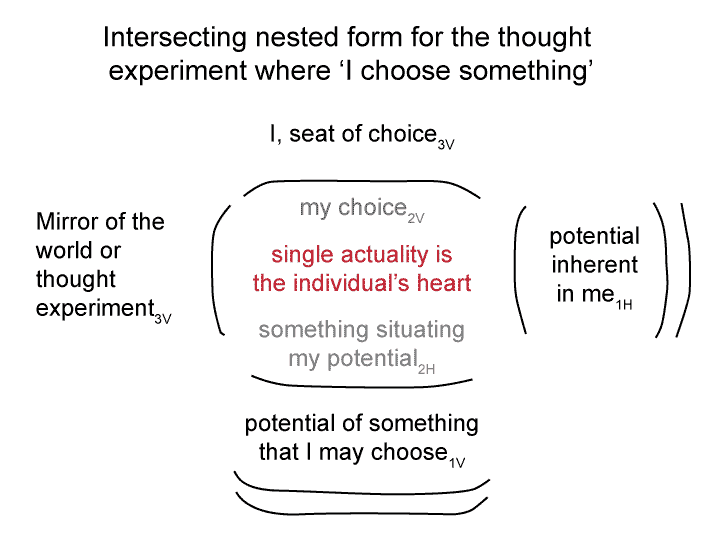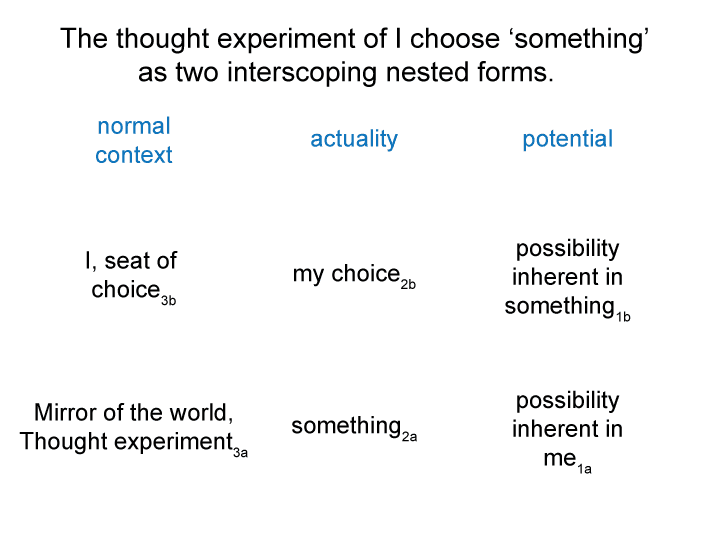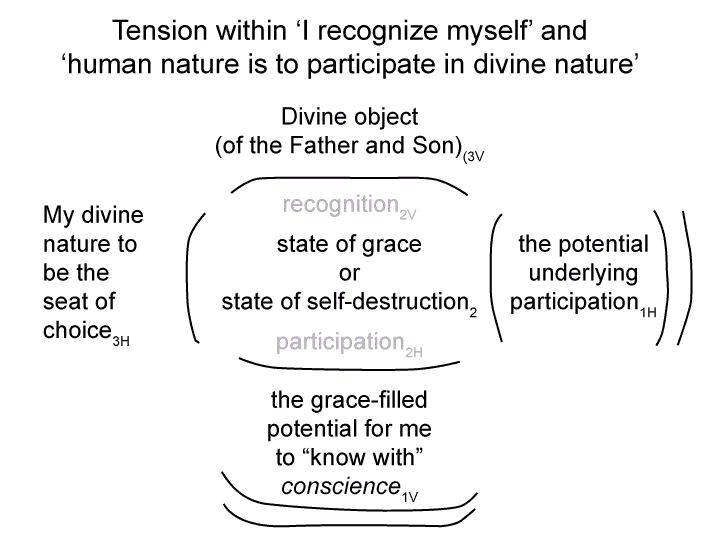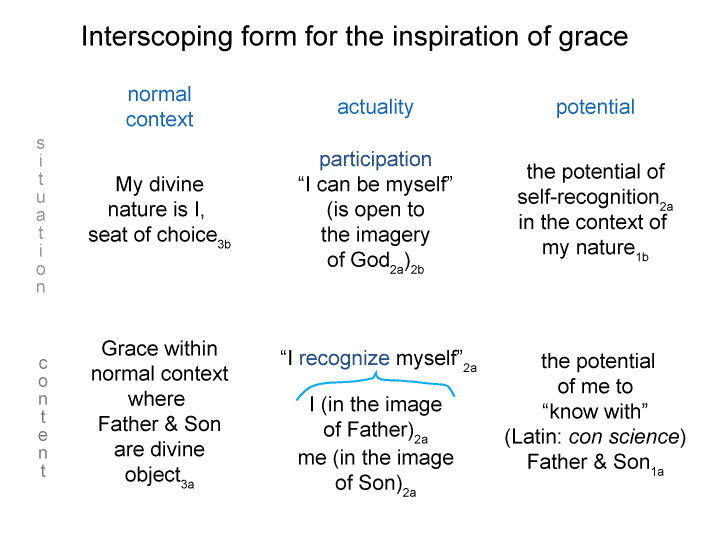Category Archives: Our current Lebenswelt is not the Lebenswelt that we evolved in
Human psychology evolved under in the social milieu of constrained complexity. Currently, humans live in unconstrained complexity. What has this done to our minds? These topics are addressed in various parts of An Archaeology of the Fall, particularly in chapters 8C and 11B.
Man and Sin by Piet Schoonenberg (1964) 2.3 ZB
Summary of text [comment] page 88
[Given these two nested forms, there are several ways to bring them into relation, including intersection or interscope. Here are two ways to do that.]
Man and Sin by Piet Schoonenberg (1964) 2.3 ZA
[One may dispute these nested formulations. Perhaps, one can claim that the thought experiment should be left out of the picture. However, to me, that runs against a key observation: Choice and the something that can be chosen are two independent actualities.
So, the thought experiment where ‘I choose something’ became a model.
This is not the only way to approach Schoonenberg’s difficult and condensed text. It is the route that I explored.]
Man and Sin by Piet Schoonenberg (1964) 2.3 YX
[What did I find?
Two actualities were evident: the event of the choice2 and the actuality of something2.
Two actualities implied two nested forms: I choose something and a thought experiment where something forms in my mind. The former goes with the event. The latter goes with the actuality of something.
Thus, the idea of ‘I choose something’ became the thought experiment where ‘I choose something’.]
Man and Sin by Piet Schoonenberg (1964) 2.3 YW
Summary of text [comment] page 88
[The title of section 3 of chapter 2 is The Inclination to Evil.
But, Schoonenberg’s real topic is freedom.
My challenge was to examine this topic using nested forms.
So, I began my nested analysis the idea of ‘I choose something’.]
Man and Sin by Piet Schoonenberg (1964) 2.3 YT
[Before I go another round in chewing the cud on this, I want to briefly re-iterate the interscope and intersection proposed in section 2.1.
Consider two nested forms:
I recognize myself as an image of God.
My human nature is to participate in divine nature.
The intersection produces two contrasting single actualities: grace and self-destruction.
Here they are.]
Man and Sin by Piet Schoonenberg (1964) 2.3 YS
Summary of text [comment] page 88
[Here, I take a breath and step back.
I have been going round and round within the model of ‘the thought experiment where ‘I choose something’.
At least I am not still on page 83 of Schoonenberg’s text.]




